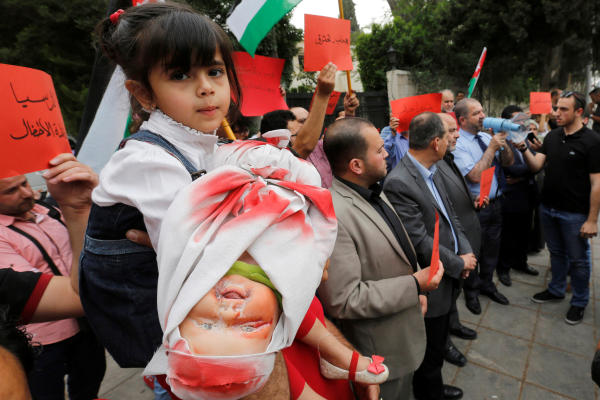The humanitarian tragedy in Aleppo is indescribable and represents the height of the Syrian ordeal. Not challenging the aggressors will give them a carte blanche to do what they like in our region. Aleppo will whet the appetite of Iran and its allies for limitless aggression, and this is the outcome of regional and international failure.
The aggressors will succeed in destroying what is left standing and commit more crimes, but they will not achieve their goal to re-establish Bashar Al-Assad’s rule on Aleppo and other cities.
The Syrian regime’s forces have been talking about “liberating” Aleppo since last year when Russian troops entered Syria and participated in the war on the side of the regime’s forces last year, alongside Iranian forces. However, the situation remains as it is despite Moscow claiming that it withdrew its troops, a claim that turned out to be untrue.
The Iranians sent their troops there two years before the Russians did, and like the Russians, they did not succeed. The Iranian Revolutionary Guard Corps (IRGC) expanded its capabilities by forming an alliance of religious extremist militias including the Lebanese Hezbollah, the Iraqi Asa’ib Ahl al-Haq, Afghans and others, which also failed. Assad’s army has also failed to achieve this since the beginning of the confrontations with his people in the 2011 uprising.
Russian and Syrian fighter jets enjoy full control over Syrian airspace because the Syrian opposition has been deprived of missiles and ground defences. Russian and Syrian air forces have only been successful in doing one thing; destroying cities in a way that hasn’t been seen since World War II. However, they achieved little or nothing, with the exception of the retrieval of some neighbourhoods in Aleppo. The only victory that Moscow can talk about is that it allowed Assad’s forces to reclaim the ancient city of Palmyra.
Assad does not dare to leave his palace in Damascus, and a part of the rural area of the capital is still in the hands of the opposition after the IRGC and Hezbollah failed to seize it.
The results of the Russian-Iranian intervention are meagre, even if we take into account the huge efforts to blockade the opposition by cutting off Turkey’s funding of it, shrinking the foreign aid that it receives, the United Nations’ silence on the crimes that these armies commit against civilians, the formation of a US-led coalition to fight ISIS with the help of the Syrian regime and leaving Assad’s forces to capture liberated areas.
All of these combined efforts have resulted in demolition, displacement and the murder of one third of a million people, but have failed to restore the authority of the Syrian regime to what it was before the revolution. What remains in front of the Russians and the Iranians is to push millions of people in Syrian cities such as Aleppo to flee the country.
The Iranian, Russian and Syrian triangle will continue to murder and kill unless regional powers move to support the opposition and provide it with weapons to disrupt the brutal air attacks. We do not expect any of the countries in the region to directly intervene militarily, and the United Nations will not do anything. Nor will Barack Obama’s administration change its indifferent position.
The silence of the region’s governments on this genocide will make them pay a higher price later and Iran will be emboldened to repeat its crimes. I am afraid that we will see Iran in Iraq soon considering that it is confident that no one will challenge it in Syria. Iran is currently destroying the political regime in Baghdad in order to control it completely, and it is likely that it will push its forces or other militias to control the situation there.
If a front that resists the Iranian camp is not formed, the scale of the crisis will increase.
